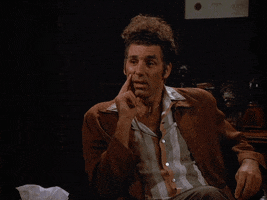Does anybody have any reviews or insight on United Health Services Hospitals in Johnson City, NY or Our Lady of Lourdes in Binghamton, NY?
I’m a current resident at UHS (AKA United Health Services, Inc. in Johnson City, NY in case someone tries to find this with a keyword search) and will try to be as unbiased as possible; overall I’m happy I’m here.
Pros:
-Numbers are solid; we are level 2 trauma and do get a decent amount of foot trauma. We also get really good pediatrics numbers which is unusual for most podiatry residencies. I see multiple pediatric patients in my resident clinic every week.
-Solid attendings that are very skilled in the OR have great patient outcomes; new attending under contract to start in June who is finishing a rearfoot/ankle fellowship with the hopes of being our ankle-dedicated attending (currently have one other but they spend more time at Lourdes)
-Really solid resident-run clinic once a week (half day) that books out months in advance, very busy with really good variety (trauma, peds, orthotics, wounds, rarely nails—we have one clinic day per month set aside for nails but it’s usually filled with non-nail patients due to demand in medically underserved area). The clinic is also in a really new outpatient building that is aesthetically pleasing and very well-equipped and staffed by nurses and MAs who are exclusively with podiatry)
-Wound care center dominated by podiatry with ample opportunities to be very hands on
-Epic is our EMR, which takes a lot of headache out of residency IMO versus other EMR systems I saw as a student
-Really strong off service rotations with attendings that respect us and give us hands on experience
-Director gives you flexibility to focus on your biggest interests and strong opportunities/good connections for elective rotations
-Disproportionate number of recent graduates have placed in fellowship and hospital positions
-Good benefits including salary starting over $60k (outdated on CASPR), very cheap (like $600 per month all utilities including internet) on campus housing available (1 to 3 bedrooms), inexpensive good health care coverage (especially if you get your care at UHS), cheap dental/vision plans, Hospital is also nonprofit so you can get credit toward PSLF while here
-Low cost of living, little to no traffic, people who are from this area are friendly (feels more like Midwest), all of our clinic/hospital locations are within 10 to 15 mins driving time
-1 hour from Elmira, Ithaca, Syracuse, Scranton; 3-4 hours drive from NYC; pretty surrounding area in the fingerlakes
Cons:
-While ankle numbers are there, we primarily get them with ortho like many NY programs and it’s more in an observational role unfortunately. This should hopefully be changing with our incoming fellowship trained DPM (NY requires special certification for RRA); big recon cases are uncommon
-History of toxic social environment that has improved with residents graduating thankfully (current group gets along far better; the challenge is we scramble a lot which has led to limited ability to balance personalities coming in, etc)
-We do unfortunately double scrub nearly all cases, though would get our numbers fine even if we didn’t—just sort of the director’s philosophy on that
-Right now only 6 of 9 spots are filled, so hours on service can be long (though can be a benefit in terms of surgical experience, and still wouldn’t call it a program where you’re working an inordinate number of hours; maybe 60-70 when on service and off service is closer to 40)
-Binghamton/Johnson City themselves are kind of run down/do not have a ton going on if you’re looking for a big city vibe (suburbs are pretty though)
-On campus housing, while a great deal, is in a crummy area/older (though there’s a significant number of families with kids living there from the various residencies and spaces for kids to play with lots of toys, etc, so if you have a family the on campus housing actually is family-friendly)
-Few direct flights to local airport, but 1 hour from Syracuse which has lots of direct flights
I’ll update if I can think of more. Feel free to ask me anything. Obviously biased because I’m here, but am trying to be as impartial as I can.
